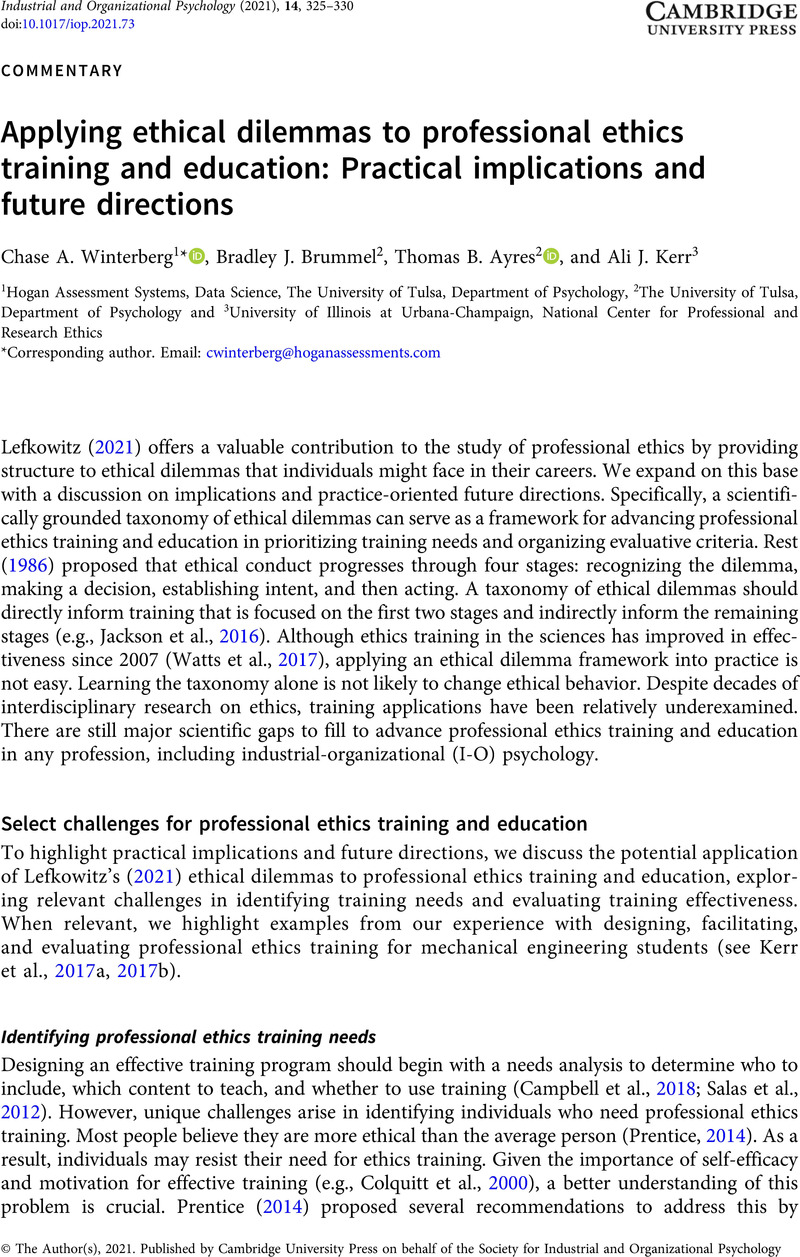Crossref Citations
This article has been cited by the following publications. This list is generated based on data provided by Crossref.
Fatima, Muqadas
and
Ilyas, Uzma
2024.
Development of Ethical Dilemma Distress Scale for Mental Health Practitioners
(EDDS-MHP).
Pakistan Journal of Psychological Research,
Vol. 39,
Issue. 3,
p.
613.



